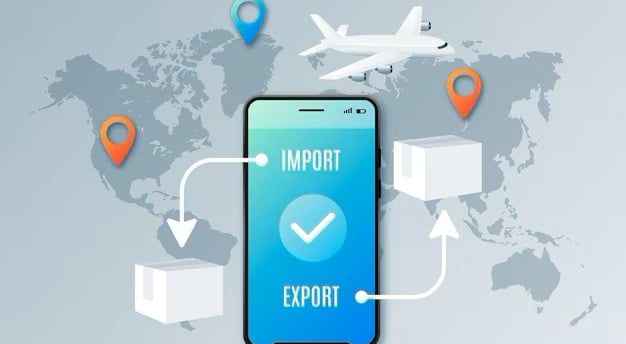What is e-export and why is it important?
1/2/2025


What is E-Export and How Is It Done? What are Micro Export Limits? What is ETGB? What to Know?
Both the acceleration of global e-commerce in recent years and the desire to earn foreign currency have increased the demand for sales in online marketplaces serving abroad. In this context, you can find the answers to the three basic questions in the title and the details in our article.
E-export is the sending of products or services sold in online marketplaces abroad within the scope of micro-export limits to customers with (ETGB).
Micro export limits are according to the latest regulation; that a weight of 300 kg and 15.000 euros value which does not require a different regime process for sale. Packages under these limits can be declared with an Electronic Commerce Customs Declaration (ETGB)
It is the basic rule to carry out e-exports on a micro-export scale, and the enterprises that will carry out e-exports do not have to be small, medium or large. Regardless of the size of the business, micro-exports can be made, including sole proprietorships. The most important point to be known here is that real persons who do not file a tax declaration cannot make micro-exports. Absolutely, people should establish a sole proprietorship or a different type of company.
E-export applies to both B2B marketplaces and B2C marketplaces. In particular, SMEs can start e-export immediately by opening their stores in overseas markets such as Ozon.ru, Allegro.pl, Joom.com, which receive orders from many countries, and can receive orders by listing their products. They can deliver their orders to the end buyers via express cargo carriers.There are marketplaces such as Joom.com that offer their own cargo solution, there are also marketplaces where sellers have to make sales on the condition of making a cargo agreement. In this case, each seller can make an agreement with a cargo company in order to sell in these marketplaces. You should pay attention to the fact that the courier company you will deal with has a good knowledge of the customs legislation according to the country to which you will e-export and offers a reliable delivery solution.
ETGB, on the other hand, is a statement issued electronically without any physical output by express cargo carriers authorized by the buyers and senders. You can easily micro-export without dealing with export transactions that require long procedures, and provide VAT tax refund and cost advantage with ETGB.The fact that e-export is carried out within the scope of ETGB reduces the logistics and customs procedures in addition to the advantages we have just mentioned. For example; you do not need to agree with a customs consultant for customs declaration of products sold abroad. The most important procedure here is to register the sending company as an exporting company in the customs system.
When filling out the ETGB form, the tax office and tax number of the company, company information, bank information, type and number of commercial goods, payment method, GTIP number, invoice information, and information about the buyer company are required.
Knowing the tax and customs procedure of the e-export country determines your pricing strategy for the products you will sell. In addition, the fact that the products you will send can be transported by air and road transport and the standards in the destination country are known in advance will make it easier for you. Fair and exhibition products, sample products sent free of charge are not within the scope of micro export. And also; In order to avoid problems in the customs clearance processes of the products you will send, if it is subject to the permission of any institution, the necessary documents and documents must be provided. These documents generally include MSDS for cosmetic products and FDA for food products
Apart from this, the documents required for micro export are as follows.
One-time indirect representation authorization certificate
E-archive invoice
Proforma invoice
Export information form
What are the Conveniences of E-Export?
Our country especially supports SMEs in e-export activities and encourages them with institutions and organizations such as the Ministry of Trade and KOSGEB.
In this context, while carrying out your e-export activities;
You can earn foreign currency from sales to different countries.
You can make sales without the need for bank letters of guarantee as in conventional exports.
You can optimize your costs with tax refund.
You can save time and cost by overcoming the long bureaucratic export procedures with ETGB.
You can promote your brand and products to the target audience in the relevant marketplaces with less cost.
You can have the opportunity to make sales 24/7.
You can minimize the investment risk.
What is the Easiest Way to Start E-Export?
The easiest way to start e-export is to open a store in a global marketplace where you can sell your products. In this way, you can get the chance to start selling immediately with low risk and low cost.
The criteria you will pay attention to in the marketplace you will choose are the payment term and conditions, the delivery time, whether it requests a company establishment from the seller in the relevant country and the shipping processes.
After clarifying these processes, to start e-export;
Prepare an online catalog of the products you will sell. This catalog should contain photographic images of the products, detailed and short product content information, product title, packaging size information and all code information.
Open your store in the marketplace you want to sell.
Determine which cargo company you will work with according to the marketplace and make your contract.
Work with an e-export platform where you can integrate your store and manage product, logistics and order processes.
List your products in the relevant marketplace and wait for your orders.
